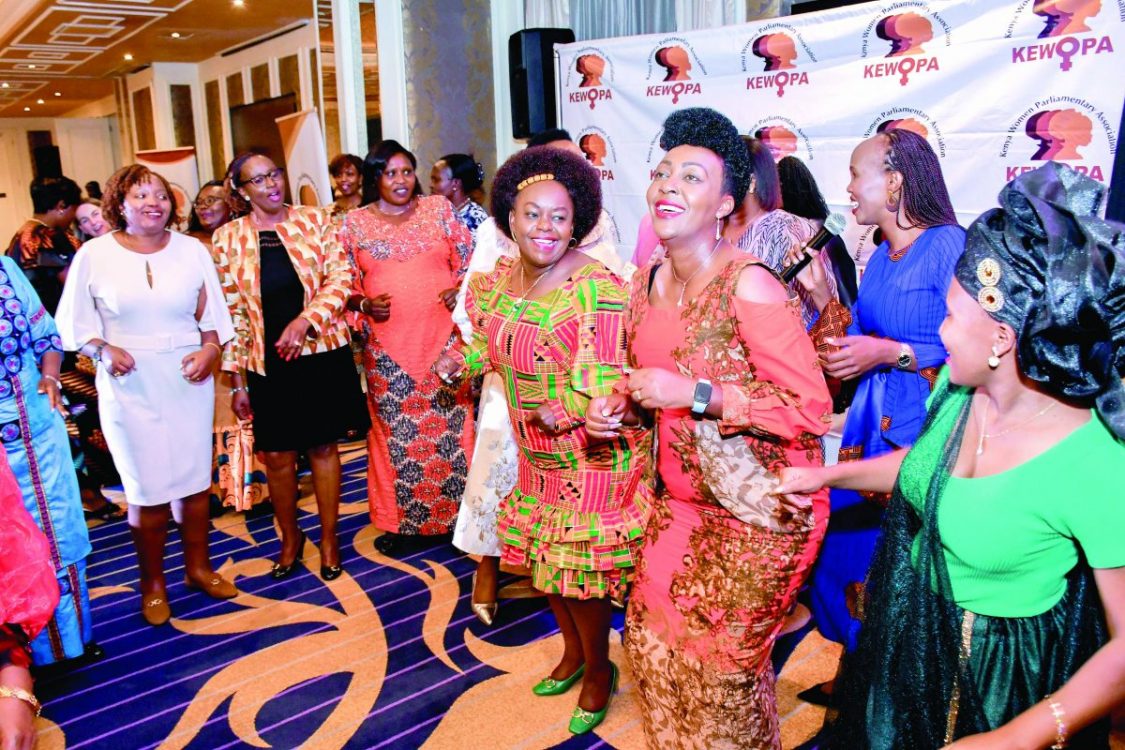Women MPs speak out on role hardships
By Mercy.Mwai, December 22, 2023Women MPs yesterday narrated the challenges they undergo while seeking election to parliament.
The lawmakers claimed that, unlike their male counterparts, they have been forced to work ten times more as well as persevere harsh conditions during campaigns for them to get elected.
Speaking during the launch of the strategic plan 2024-2027 for Kenya Women Parliamentary Association (KEWOPA), the women legislators shared cases of how men gang up against them whenever they want to push any agenda in parliament.
MPs Millie Odhiambo (Suba North) Martha Wangari (Gilgil), Beatrice Elachi (Dagoretti North), Catherine Mumma (Nominated Senator) and Joyce Kavindu (Machakos Senator) said they have been forced to portray themselves as women of steel in order to survive in the murky political world.
For instance, the lawmakers cited the push to have the two-thirds gender bill passed as one of the cases they expect men from Kenyan Kwanza and Azimio La Umoja to unite to have it defeated in the House.
Sanitary towels
They also claimed that whenever motions and petitions touching on women such as Female Genital Mutilation (FGM) and provisions on sanitary towels are lined up for debate in the house, their male counterparts always walk out on them saying those are matters that do not affect them.
Odhiambo, who is serving her fourth term in parliament, supported the push to have the two-thirds gender requirement fulfilled on the grounds that her entry into parliament was through affirmative action.
Said Odhiambo: “Please continue bringing laws that will bring back the dignity of women. let us support each other because this is the only way we can move forward.”
Wangari, who serves in the speaker’s panel, supported the calls to have the two-thirds gender principle passed as they have demonstrated that affirmative action works.
She named herself and Samburu West MP Naisula Lesuuda as lawmakers who got elected into single-member constituencies after they first became legislators through nomination.
She said: “We have demonstrated how affirmative action works and I think it is now time that we have this law passed. I believe that with the goodwill from both the president and opposition, we will crack this one.”
Wangari also took the opportunity to explain how tough it was for her when she initially joined parliament as a nominated senator as she had a two-month-old baby that saw her being branded names.
Aside from that she also shared how she was only recently awarded by President William Ruto yet she has been in parliament for quite some time.
Favour men
She said: “I was recently conferred with honours which I believe I should have gotten when I was in the senate. Even now I still don’t understand how Millie Odhiambo is yet to be awarded with such honours. I am sure if it was a man, they could by now be recognised.”
Mumma said it is sad that women in parliament need to work 300 times more to get to be acknowledged.
She said that women’s issues are always relegated to the back and more priority is given to those subjects that favour men.
She said: “Can assure you that one thing the two-thirds gender rule will do is to unite both Azimio and Kenya kwanza men MPs.”
Kavindu narrated how during the run-up to last year’s campaigns, women were being told to vie for the Machakos senatorial seat to stop her from winning the said seat.
She said: “I thank the Kenya Kwanza women for refusing to be used. They were told to vie against me but they refused.”
Elachi told President Ruto to meet female MPs to allow them to articulate their issues.
The sentiments by the female MPs come at a time when they have been lobbying their male counterparts to support them in passing the two-thirds gender bill when it comes to the house.
Already President Ruto has promised to work with parliament to implement the said principle.
Implementation of the two-thirds gender rule has remained elusive despite more than three attempts by MPs to push it through.
The latest attempt to push for the rule through the Building Bridges Initiative (BBI) collapsed after a landmark ruling declaring the process illegal.
The said law was supposed to have been passed by 2015, five years after the enactment of the 2010 Constitution, but subsequent amendments to the fifth schedule of the Constitution by the MPs saw the timeline extended.
